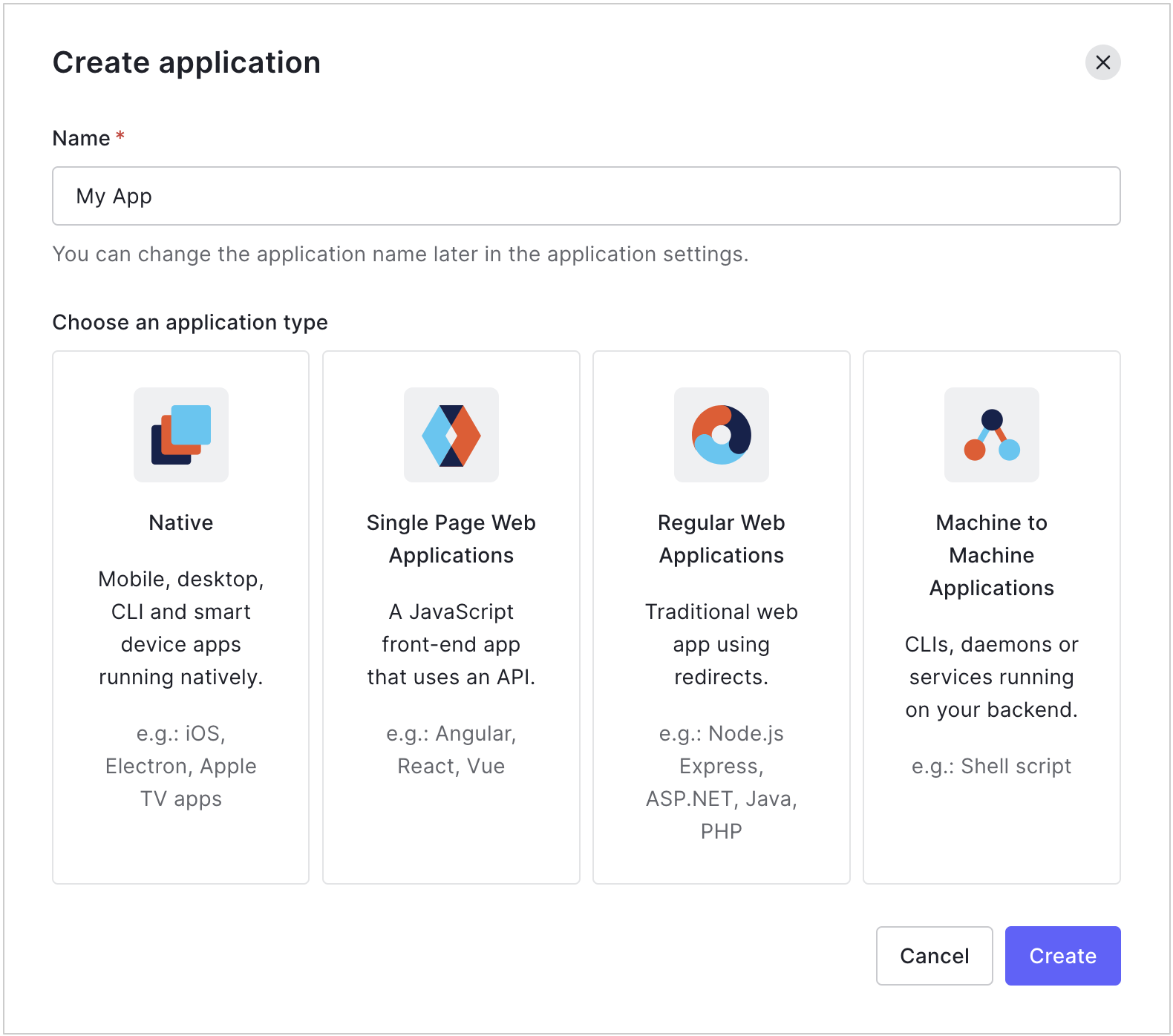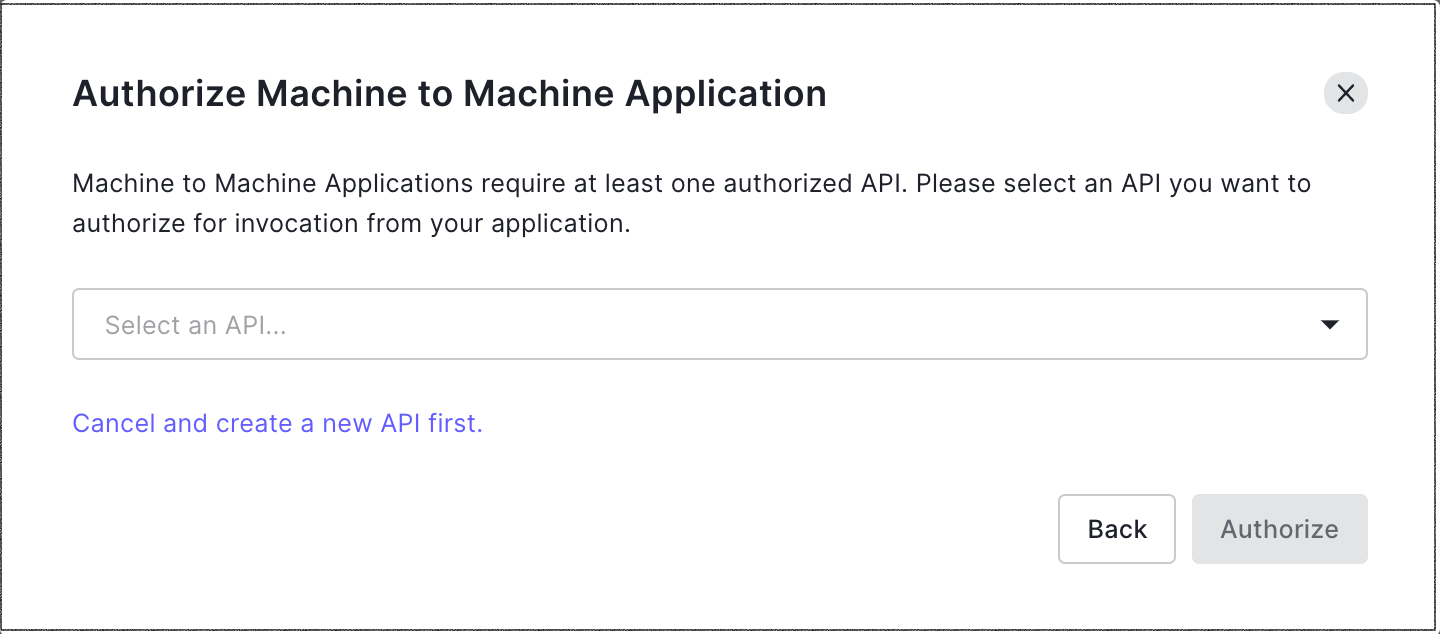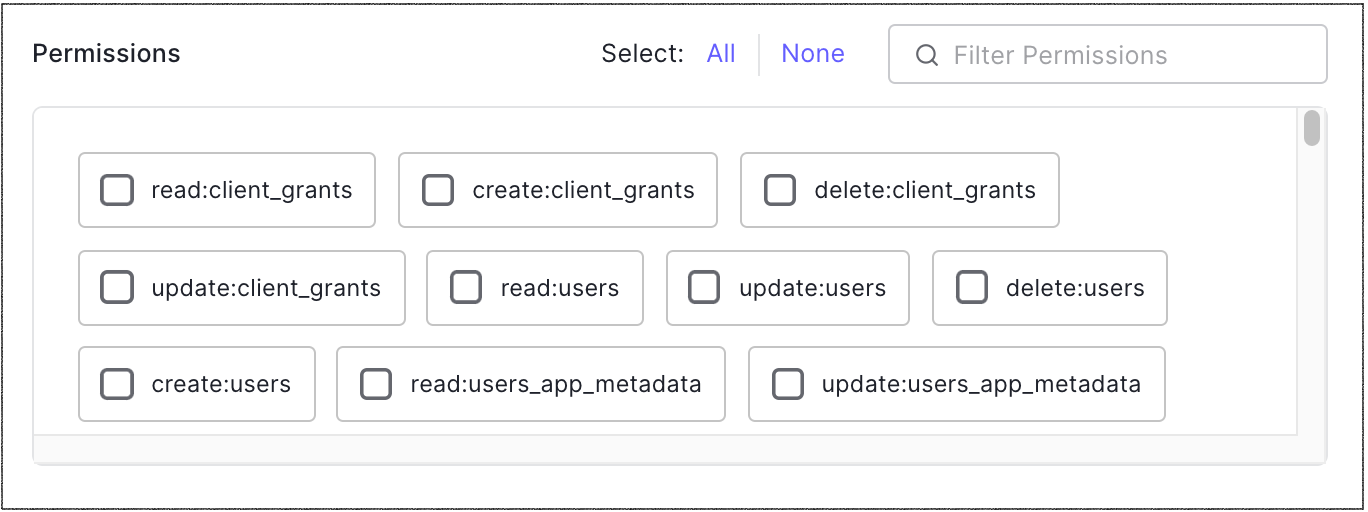Register Machine-to-Machine Applications
To integrate Auth0 with a machine-to-machine (M2M) application, you must first register your app with Auth0 using the Auth0 Dashboard. These apps may include non-interactive apps, such as command-line tools, daemons, IoT devices, or services running on your back-end.
M2M apps are linked to an API and its permissions or scopes, which are selected from pre-defined values. Make sure you have already registered the associated API with Auth0 and defined scopes for the API before beginning this registration.
If you want to authorize your application to access only the Auth0 Management API, you do not need to do anything; the Management API is pre-populated for you.
Go to Dashboard > Applications > Applications and click Create Application.
Enter a descriptive name for your application, select Machine to Machine Applications, and click Create.

Select the API you want to be able to call from your application.

Each M2M app that accesses an API must be granted a set of permissions (or scopes) that should be granted by the authenticated user. To learn how to add permissions, see Add API Permissions. Select the Permissions that you want to be issued as part of your application's access token, and click Authorize.

Once the new application is created, you will be directed to Application Settings which includes the following tabs:
To learn more, read Application Settings.Settings Tab Description Quick Start Shows all the available examples for ${application_type} applications. It also shows you how you can call your API using various technologies. To learn how to accept and validate Access Tokens in your API, see our Backend/API Quickstarts. Settings Shows all available settings for your application. By default, most of the settings will be created for you. APIs Allows you to authorize additional APIs for use with your Application.
Next steps
Once you have registered and configured your application, some common next steps are:
Configure a connection and enable it for your application.
Modify your app code to use your Auth0-registered application. See our Auth0 Quickstarts, where you'll find detailed instructions and samples for a variety of technologies. You'll also learn how to implement login and logout, handle your user sessions, retrieve and display user profile information, and more.
Use Auth0 APIs.
The Authentication API handles all primary identity-related functions (for example, login, logout, and get user profile). Most users consume this API through our Quickstarts, the Auth0.js library, or the Lock widget. However, if you are building all of your authentication UI manually, you will have to interact with this API directly.
The Management API allows you to automate various tasks that can also be accessed via the Dashboard in Auth0 (for example: creating users, setting application grant types).


